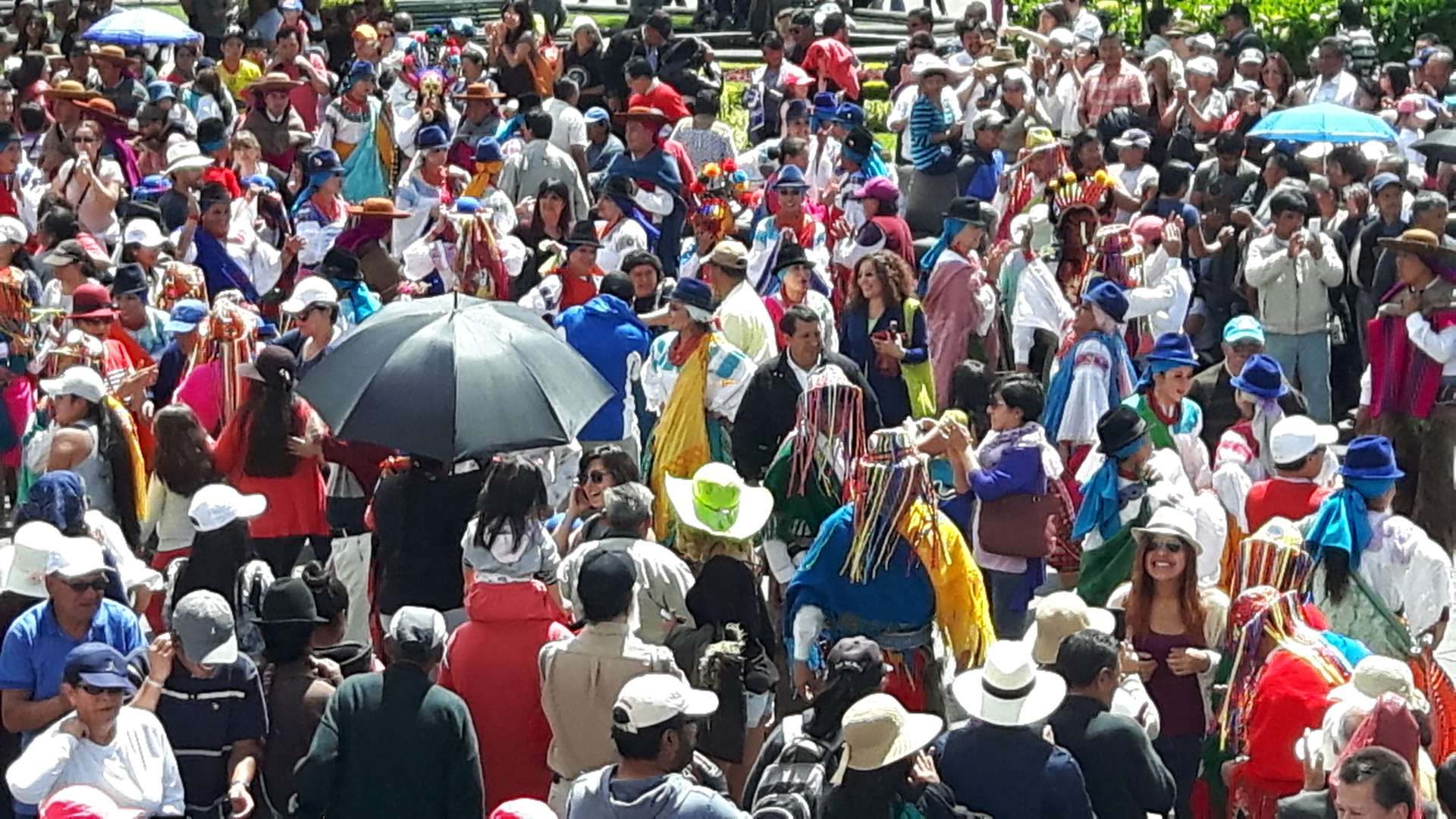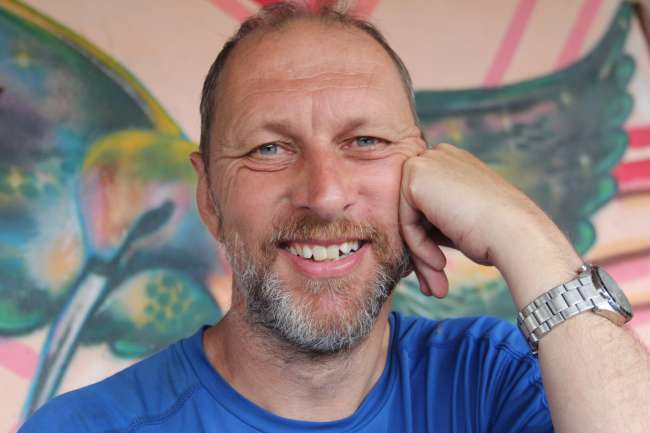May 30, 2017
Publicado: 04.06.2017
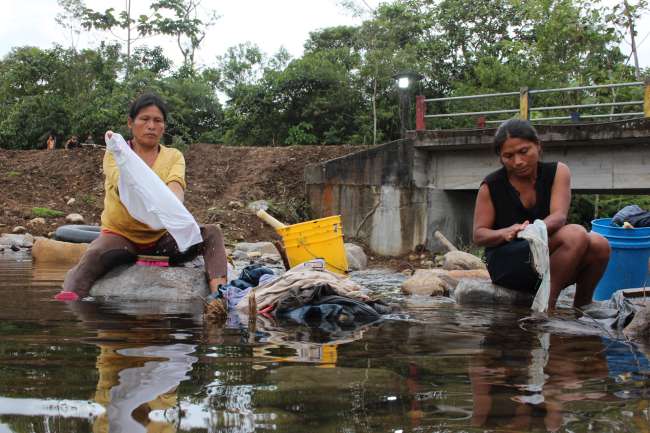
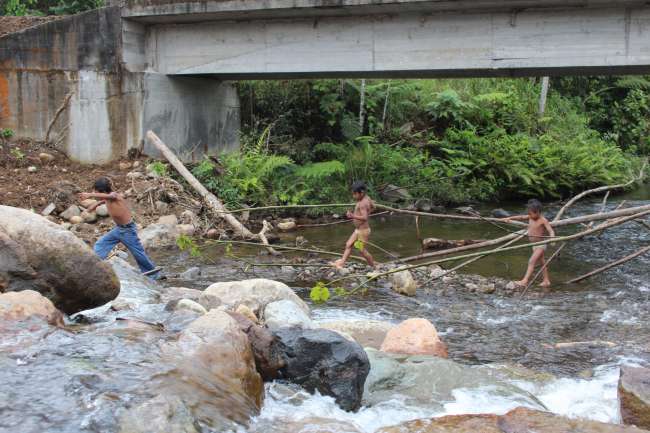
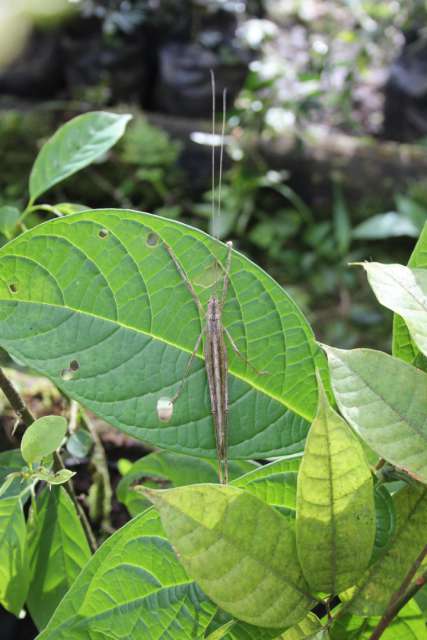
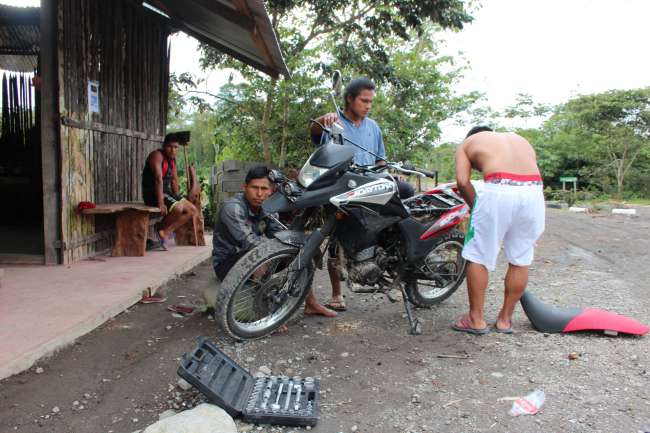
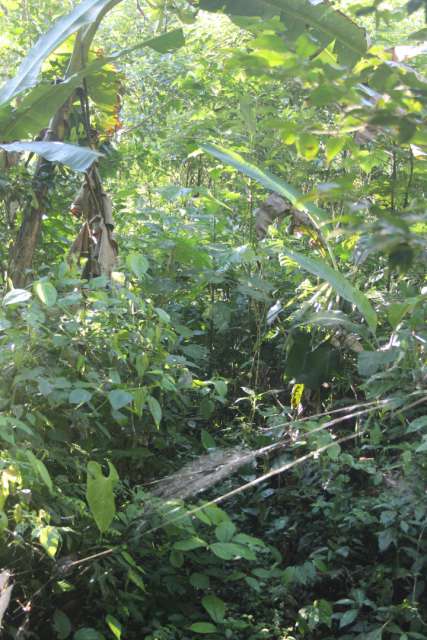
Willakuy qillqaman qillqakuy
After breakfast on Mura, prepared by Tzama (toasted buns and fresh tea made from various plants), I made my way down to the village. I informed Maria, who was doing laundry, that I had already eaten breakfast. Then I went to the vivero and continued planting the sprouted plants. Especially palm trees. The smaller they were, the easier they were to plant. It's not so easy, you see, to put a young palm tree with a 20 cm long root into a small bag of soil that is only 15 cm long. First, you have to drill a hole in the soil with a small stick, and then it closes up because the soil sticks. I just hope the plants are resilient and forgive any mistakes that are unavoidable in this wet environment.
The fresh sprouts, red tips from a bulb the size of a large chestnut, were much easier to handle. With a small root base, they were simply planted in the wet soil in the little bag and voilà. They still have the nutrients from the bulb. So, I don't think there will be any problems with them taking root.
Lunch was at Maria Flores' dining room in front of the kitchen. Rice with bowtie pasta and chicken. Since I was the first one at the table, I chose the portion with the fewest pieces of chicken. My digestion still isn't functioning quite as it should, you see.
After eating, Tzama arrived. He was about to head into the village to take care of something with his 250cc Honda. Valeria, the Argentinean with her 4-year-old son Camillo, came with me to the vivero. She explained to me that there is a rule that states that you should only transplant a plant when it has three leaves. That went against my practice of transplanting the sprouts. But oh well, I'm here to work, not study. Nevertheless, I'm convinced that my sprouts will make it. If I had to decide, I would even start germinating palm trees in the little bags from the beginning. It would be easier. As I said, it doesn't matter.
The two of them left again.
By three o'clock, the heat was so intense that I decided to go to the pool and swim. It was wonderfully refreshing. Then I lathered up and washed all parts of my body. It was quite easy this time because there were very few people around. I still have my inhibitions from Central Europe.
But then I had to climb up to Mura in wet pants and an undershirt with my work clothes on. The other day, I measured the distance from the village to Mura with GPS, as the crow flies, of course. It's 593 meters, which means it's about 750 meters with all the curves. Plus an elevation gain of 50 meters. When I think about the adventure of the first day with the suitcase...
Near the accommodation, I kept hearing the same words over and over again. Some kind of incantation or formula that Valeria repeated like a mantra. Hundreds of times, it must have been total.
Es is slowly becoming rather esoteric here. Just one more week and then I'll be back in the sober coolness of Quito.
In the evening, Valeria asked me if I wanted to eat something. She was cooking avena. I believe that's the stuff Aline brought in a little bag, which suddenly showed maggots that caused a commotion in the kitchen and, above all, in Andrea. When Valeria took the avena package in the dark of the kitchen hut, I could also see infected spots. When I later held the cup with the hot cooked avena in my hands and stuck the spoon in, I refrained from shining a flashlight in. Insects for the second time.
Nevertheless, the thing tasted quite good with the cane sugar.
Yes, and then there was another moment in which I would have liked to say no, but I couldn't because politeness and above all the surprise and kindness of a person forbade it.
Valeria appeared with a plastic bag containing a disintegrated and yellowed paperback. 'Las venas abiertas de América Latina' by Eduardo Galeano. Again, I didn't understand everything word for word, but the matter was somehow crystal clear. She had been carrying this book with her for a long time, originally receiving it from a friend who had received it from a friend, and so on. And now she was passing it on to me so that I could continue carrying it. So, it was immediately clear to me that this was a special gift, like Nanki's Shuar spear. I couldn't refuse it. Although I weighed in my loud thoughts how much effort it would take me to read it with my Spanish knowledge, I couldn't bring myself to say, 'Hey, you know what? Give that thing to someone else, okay? I can't do anything with it, clear?!'
I simply said, 'That's a big gift, isn't it?' She confirmed that, and I thanked her, touched and warmly.
Later, in my thoughts, which naturally revolved around future plans regarding the book, I imagined that, worst case scenario, I could dispose of it somewhere in a bucket at the Quito airport. Or upon arrival in Miami, I could burst into tears and confess to the Latino customs officer, in a heart-wrenching manner, that I had been carrying this book with me for four years now, fully grasping the concerns of the Latin American people, and that just now, upon arriving in this hall of the supposedly promised land, the Virgen de San Francisco appeared to me and instructed me, Guillermo, to give this book to him with the message to absorb the words contained within and continue spreading them to the world.
Given the many onlookers, he would have no choice but to accept the book and devise a strategy of his own to get rid of it.
Willakuy qillqaman qillqakuy
Kutichiy
